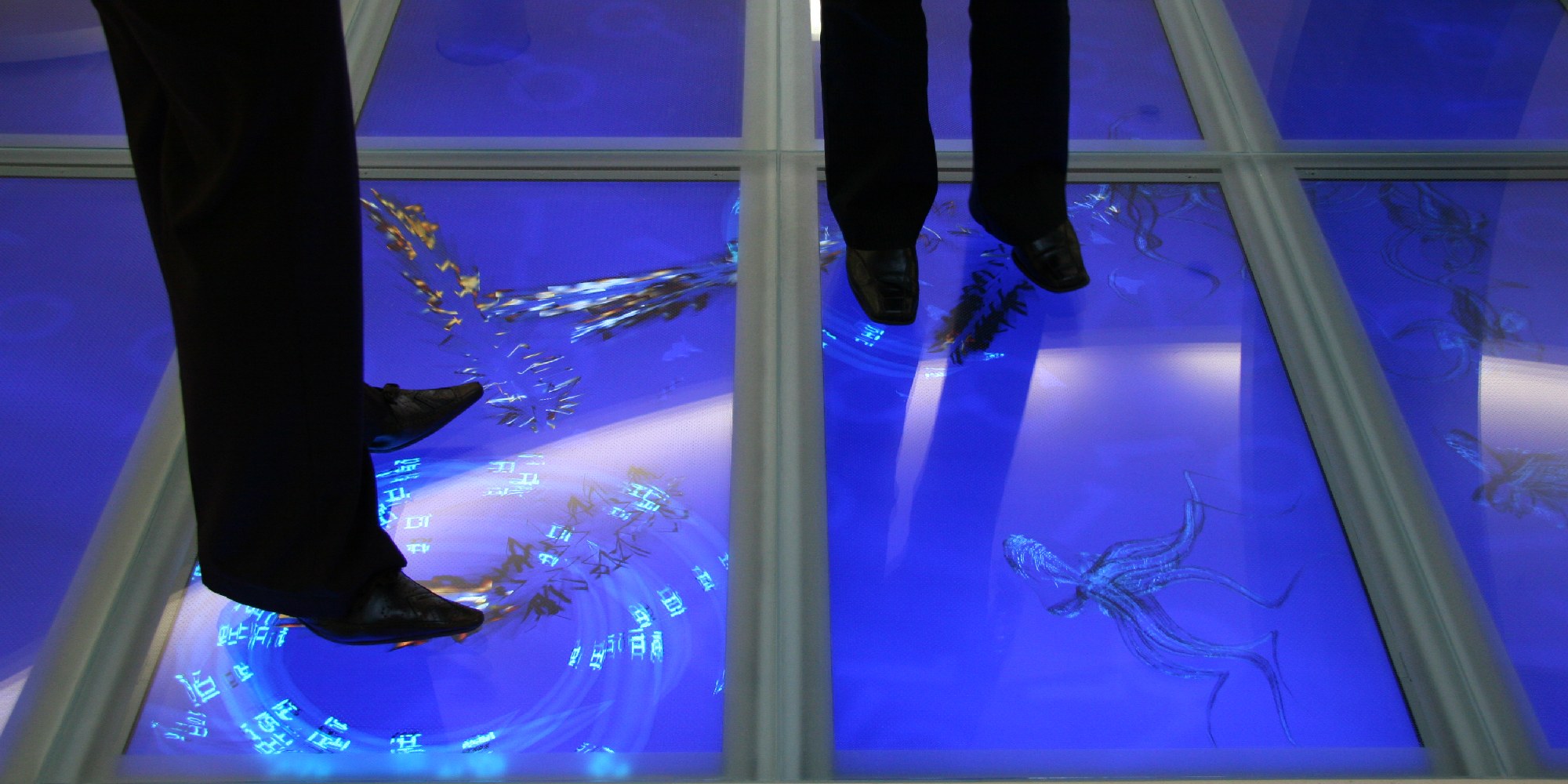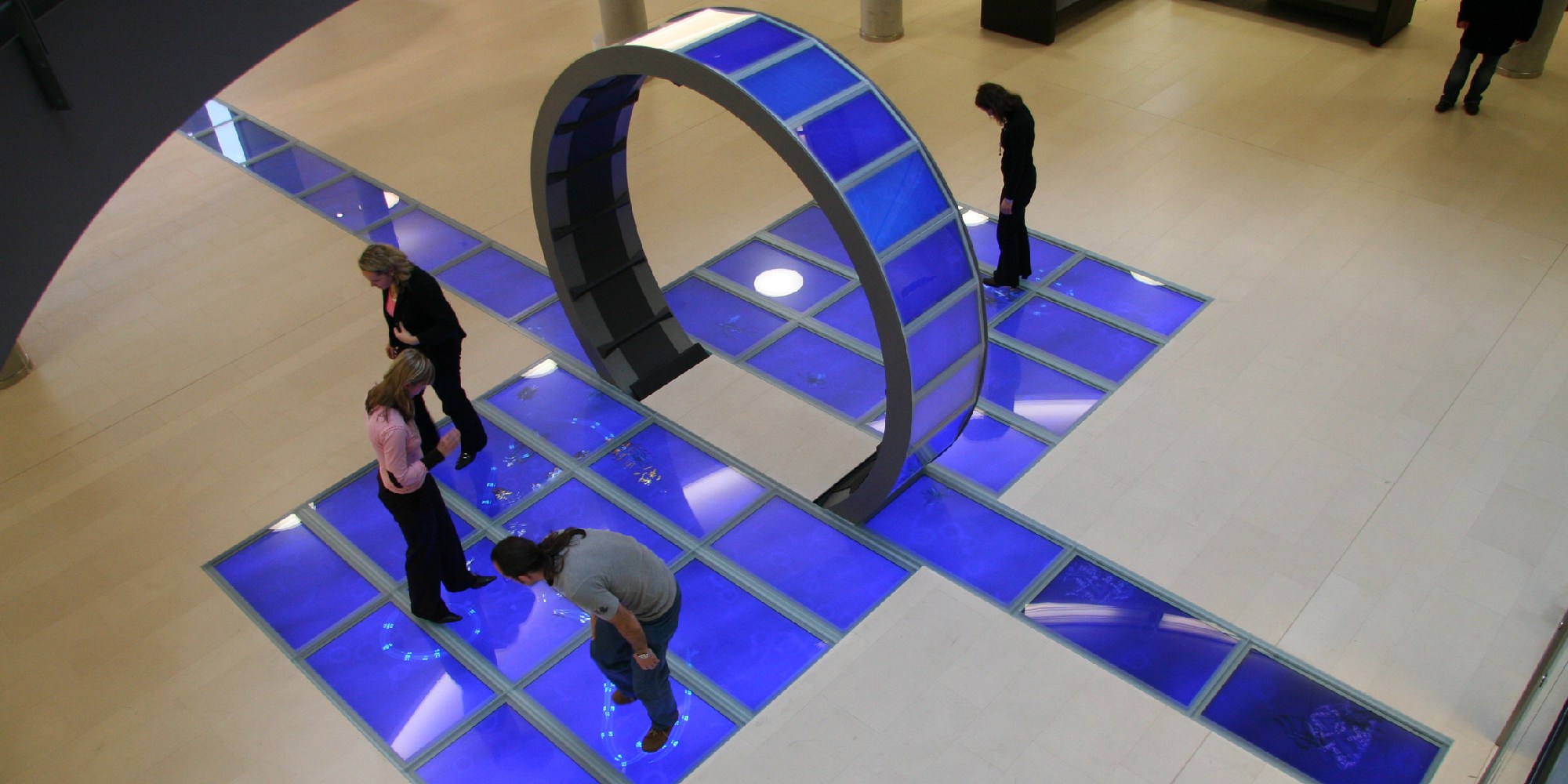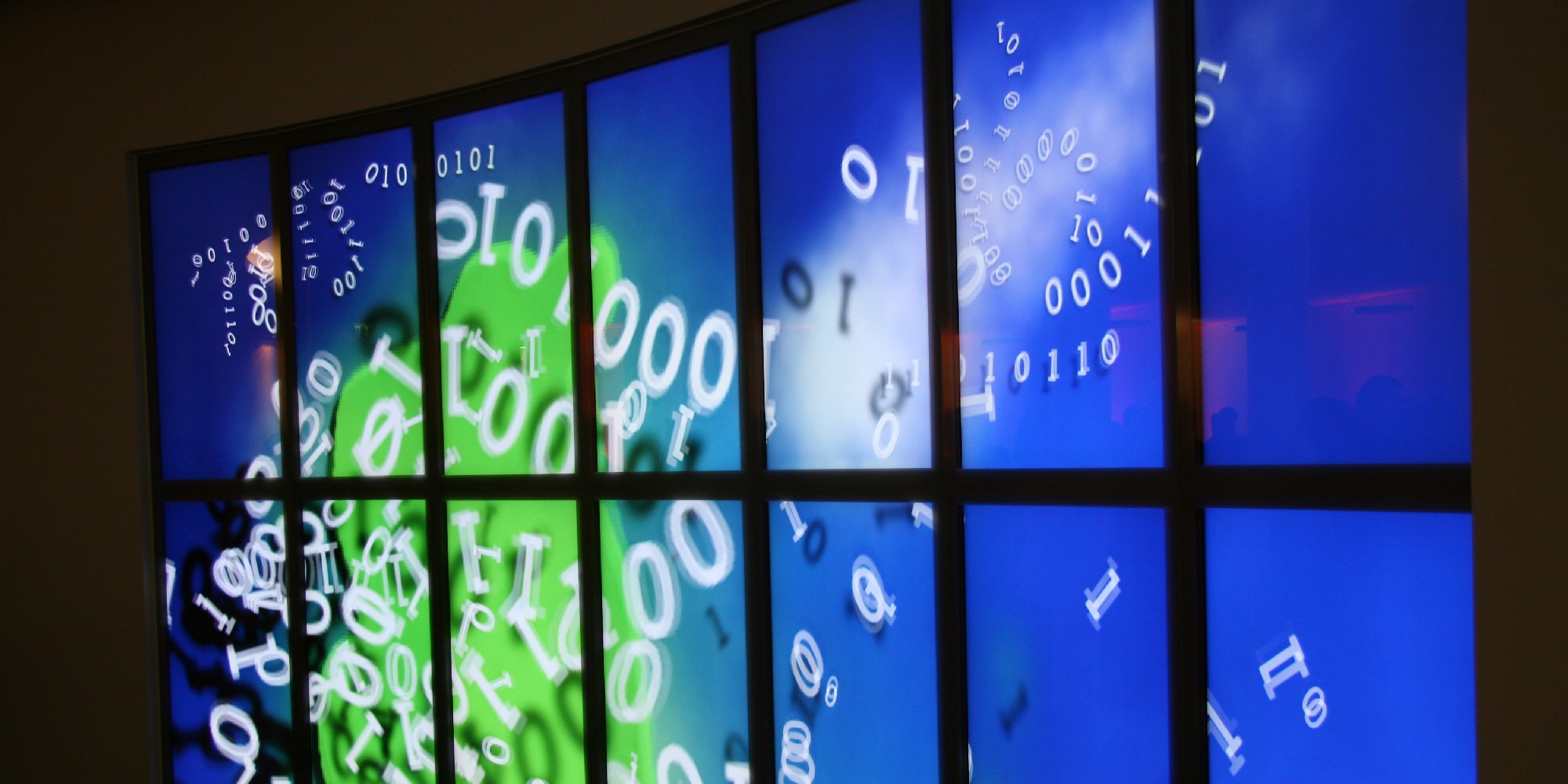SAP, as an enterprise that configures and provides an organizational setting for abstract business processes, is Source.Code’s point of departure.
Business processes that actually take place within the company’s corporate structure are transformed into visualizations that populate the headquarters complex itself in the form of abstract creatures that react to visitors—for instance, timidly, politely encouraging, or even somewhat miffed. Thus, a visit to SAP Germany’s new premises means an encounter with the actual residents of the business world: its processes.
Watercourses form axes. They connect and mediate, they move and direct. And they do so in the new headquarters of SAP Germany too. Here, state-of-the-art technology and one of human culture’s oldest navigational aids merge to form Source.Code (Quell.Code), a network of interactive signage pointing the way to the Visitors Center.
From its spring near the parking lot, the water makes its way to a 27-meter-tall steel Stele that functions as both a landmark and an interactive architectural element. Physical contact makes its inner workings pulse with light to the rhythm of the respective visitor’s heartbeat. From here, the watercourse flows toward the main entrance. Upon arrival, it morphs into a virtual current of data fed by the global processes of SAP software.
Every bit of system input and each line of recorded information is visualized as a “process-creature” swimming in a flow of data in which these virtual inhabitants interact with guests. The movement of the flow is taken up by the mechanically driven Data Wheel. The motive force for its rotation is provided by the “sum of all staff activities” in the SAP system.
The stream of data flows on, following the elevator car on its upward path with countless process-creatures along for the ride. Each of these swarms is formed on the basis of the attributes of the particular process that triggered it; the identity of the overall business process to which it belongs is revealed as a form of greeting in the headquarters’ 4th Upper Level. This is the destination: the new Visitors Center.
The Aquarium provides access to the substantive contents that are assigned to each respective creature; those going over the Data Fall—depicted as symbolic torrent of 1s and 0s—pass through a display. Being “touched” by visitors bursts the links of these character chains and they fall individually like raindrops back to the original source.
As a work of media art, this guidance system is meant as a statement that sets up a dialog between nature and culture—that is, human beings and architecture—and simultaneously opens up a lively, individualized way of looking at SAP’s business and information processes.
Credits
Idea & Concept, Creative Director, Architecture & Design: Horst Hörtner
Idea & Concept, Project Management: Stefan Mittlböck-Jungwirth-Fohringer
Idea & Concept, Visual Rendering: Peter Freudling
Idea & Concept: Christopher Lindinger, Martin Honzik
Project Management: Michael Badics, Yvonne Hauser, Daniela Kuka, Jutta Schmiederer
Architecture & Design, Visual Rendering: Andreas Jalsovec
Architecture & Design: Peter Freudling, Gerald Priewasser
Hardware Engineering (Manager): Rudolf Hanl
Hardware Engineering, System Engineering: Erwin Reitböck, Alexander Kneidinger
Hardware Engineering: Jürgen Nussbaummüller, Robert Abt
System Engineering: Schober Bianca
Technical Consultant: Jakob Illera, Scott Ritter
Software Engineering: Dietmar Suoch (Manager), Nina Valkanova, Jakob Sebastian Doppler, Doris Zachhuber, Roland Haring, Tiago Martins
3D Computer Graphics: Florian Berger
AI-Design & Development: Carl Johan Rosen
Computer Vision: Katharina Nussbaumer, Kevin Quennesson
Data Fall: Zachary Lieberman
Visuals & Rendering: Michael Lankes, Daniel Fellsner
Documentation & Video: Ramsy Gsenger


